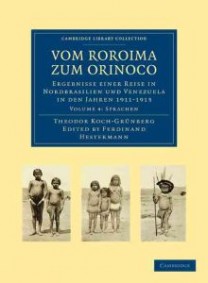Ferdinand Heinrich Hestermann was born on Dec 13th, 1878 in Wesel. He died on Dec 15th, 1959 in Jena.
Hestermann studied Philosophy, Theology, Oriental Languages, Völkerkunde, Comparative Religion and Mythology of Religion at the University of Vienna (1898-1904). He co-founded the journal Anthropos in 1904/1906 and worked as a co-contributing editor for 12 years. In 1907 he was ordained priest in the order SVD (in 1915 he left SVD and married).
In 1916 Hestermann received a PhD in Völkerkunde on Peoples od Aequatorial Africa (Orig.: Die Äquatorialvölker Afrikas). He habillitated in Völkerkunde at the University of Münster (1929) on The Caribbean Languages of Latin America (Orig.: Die karibischen Sprachen Südamerikas).
From 1917-1929 he worked in seven different Traders Schools Handelsschulen in Hamburg. Between 1923 and 1925 he edited the Journal Folia ethno-glossica (a journal of Ethnology, Languages and Administration)
He was amongst the founding members of the Gesellschaft für Völkerkunde (1929), which later became Deutsche Gesellschaft für Völkerkunde (GAA).
From 1929 to 1946 he worked as a Private Lecturer (Privatdozent) in Münster, from 1946-1948 as an extraordinary Professor (also Münster) and from 1949-1950 as Professor for General Philology and Cultural Science at the University of Jena (amongst his students was Lorenz Löffler). He claimed to speak 108 languages. In Jena, he also was responsible for the collection of cuneiform inscriptions.
From 1950-1951 he worked as Visiting Professor for Ethnologie and Comparative Sociology of Law at the University of Leipzig
Hestermann was one of the very few anthropologists who moved after WWII from West Germany to the GDR. He even started a political career in the East as member of the People's Chamber and member of the Peoples Council.
Some Publications:
- •German African Studies until 1913 (Orig.: Die deutsche Afrikanistik bis 1913), Vienna 1929.
- •Saint Vizelin, Apostole of the Holsten and Wagrian People (Orig.: Sankt Vizelin, Apostel der Holsten und Wagrier), Dülmen 1926.
(text based on: http://www.uni-leipzig.de/unigeschichte/professorenkatalog/leipzig/Hestermann_627/; Ingrid Kreide-Damani (2010) Ethnologie im Nationalsozialismus - Julius Lips und die Geschichte der "Völkerkunde". Wiesbaden: Reichert, pg 56; photo source: http://img.qbd.com.au/product/l/9781108006286.jpg)



